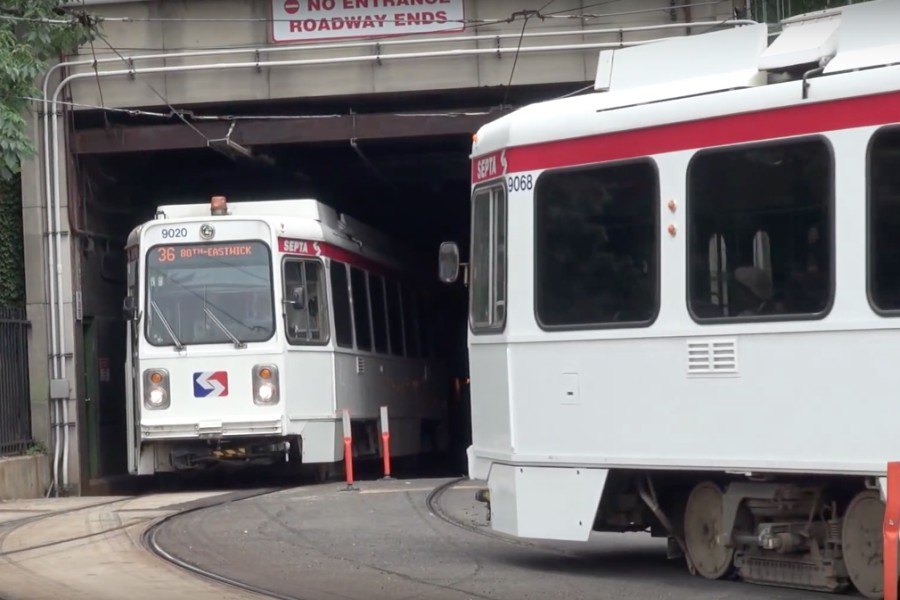With Pa. Turnpike Lawsuit Dismissed, SEPTA Can Breathe a Big Sigh of Relief
A federal appeals judge ruled that the Turnpike’s $450 million annual payments to PennDOT (and SEPTA) are indeed constitutional.

The lawsuit against the Pennsylvania Turnpike, which had financial implications for SEPTA, is likely gone for good. Image via SEPTA/Youtube
SEPTA officials can finally dream of big construction projects again, after a U.S. federal appeals court this week upheld a ruling that the Pennsylvania Turnpike was within its legal rights to spend toll money on other transit projects across the state.
The suit — filed by trucking advocacy groups in 2018 — had argued the Turnpike was charging astronomically high tolls that went well beyond the cost of operating the highway system, and in doing so, violated the Commerce Clause of the Constitution and people’s right to travel.
That the Turnpike was charging more than the road cost was a point agreed on by both sides. In 2007, the Pennsylvania state legislature passed a law called Act 44, which mandated the Turnpike make $450 million worth of annual payments to PennDOT to help pay for infrastructure projects statewide. In recent years, all of that amount has financed public transit, the vast majority going to SEPTA.
That’s why the suit, which jeopardized that annual allowance, threw a wrench in SEPTA’s grand strategy. And for a while there looked to be some real vulnerability. While the suit was making its way through the courts, the Turnpike stopped making its regularly scheduled payments to PennDOT, which forced SEPTA to temporarily halt 37 construction projects, including the planned modernization of its trolley network. SEPTA, it turns out, is quite reliant on Turnpike payments: In fiscal year 2017, $350 million of its $500 million capital budget came from Turnpike funds. (The agency had also estimated that without the Turnpike money, its fiscal year 2020 budget would drop from $675 million to $422 million.)
Fortunately for SEPTA, the appeals court judge who heard the case ruled unequivocally: “The collection and use of the tolls do not implicate the Commerce Clause,” the judge wrote.
Setting aside the now-upheld legal question, there was also a slight hole in the plaintiff’s argument: Though the truckers argued that the Turnpike was charging excessive tolls to meet its $450 million Act 44 requirement, it turns out that the Turnpike hasn’t really even been using toll money to meet most of that financial burden. Instead, it’s been issuing about $400 million worth of bonds every year. (That’s also why the Turnpike is now massively in debt, which is another story.)
The irony here is that even as the Turnpike was defending itself from the trucking lawsuit, it also hates that it’s been forced into debt to make payments for projects it ultimately has nothing to do with. But the Turnpike won’t have to keep making those payments for much longer; starting in 2022, that $450 million responsibility will fall to the state’s general fund.
Technically, the trucking advocates could petition for a rehearing of their case or appeal to the Supreme Court, but those requests aren’t often granted. And judging from the speed with which the appeals court made its ruling — some transit experts had expect final adjudication on the case to take years, when it in fact it wrapped up in a matter of months — the Turnpike’s payments appear to rest on pretty firm legal footing. Charles Stinson, a lawyer who represented the truckers, had no comment other than to say, “We’re considering other options for review.”
What the appeals court’s ruling means for now, anyway, is that SEPTA’s going to get its money. So you can bet, going forward, that we’re going to have many more years of the annual Trolley Blitz to come — and maybe, if we’re lucky, even those chic new trolleys to go along with it.


